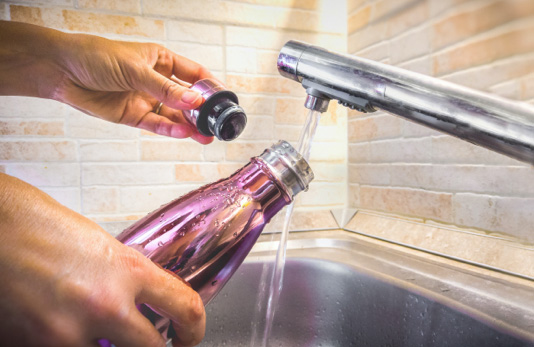Is bottled water causing your cavities?

Your tooth decay could be caused by a seemingly unlikely culprit: bottled water.
The problem is bottled water often lacks fluoride. A natural mineral, fluoride is an established way to prevent tooth decay.
Fluoride is absorbed easily into tooth enamel, especially in children's growing teeth, and once teeth are developed, fluoride makes the entire tooth structure more resistant to decay.
Fluoride, bottled water and your oral health
As more consumers sip bottled water, fewer of them ingest enough fluoride to prevent cavities. If bottled water is your main source of drinking water, you could be missing the cavity-fighting benefits of fluoride.
First started in 1945, community water fluoridation has become recognized as a key intervention:
- Water fluoridation is among the top 10 public health achievements of the 20th century, according to the Centers for Disease Control and Prevention (CDC). The American Dental Association and Delta Dental, among other industry leaders, actively support the use of fluoride to prevent and reduce the incidence of tooth decay.
- Most tooth decay can be prevented when fluoridation is combined with dental sealants and other fluoride products, such as toothpaste.
- Drinking fluoridated water reduces cavities by about 25% in children and adults, according to the CDC.
How to get enough fluoride
If you or your children don't drink much fluoridated water, here are some ways you can add more fluoride to your diet:
- Consume commercially prepared foods and beverages that are fluoride-fortified. (Some U.S. water-bottlers offer fluoridated products.)
- Use fluoridated toothpaste, rinses or professionally-applied gels or varnishes. These products can help strengthen teeth by hardening the outer enamel surface.
- Take dietary fluoride supplements (tablets, drops or lozenges). Supplements are available only by prescription from a dentist or physician and are intended for children ages six months to 16 years living in areas without fluoridated water in their community.
Last updated March 8, 2022
Related articles:
The oral health information on this website is intended for educational purposes only. Always consult a licensed dentist or other qualified health care professional for any questions concerning your oral health.


